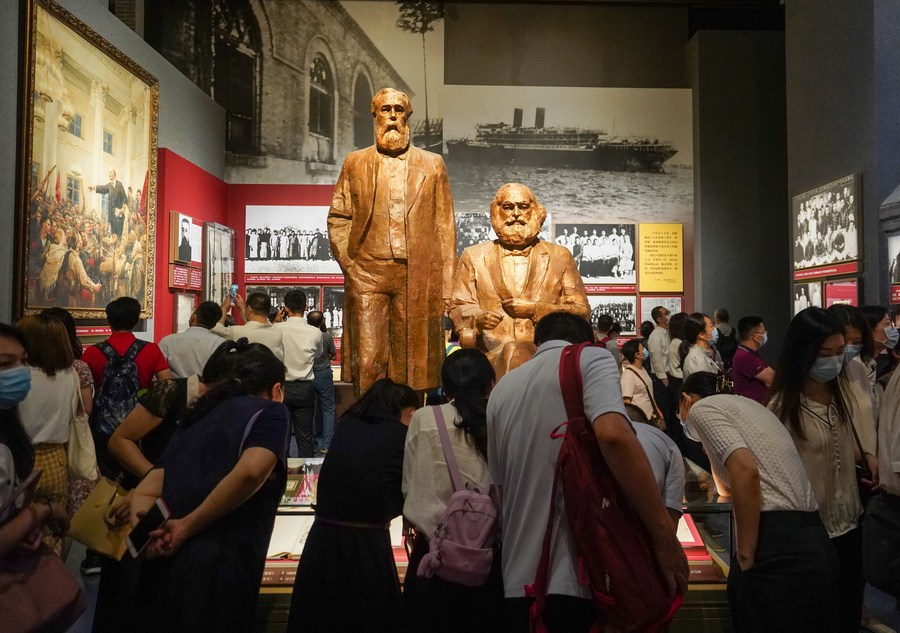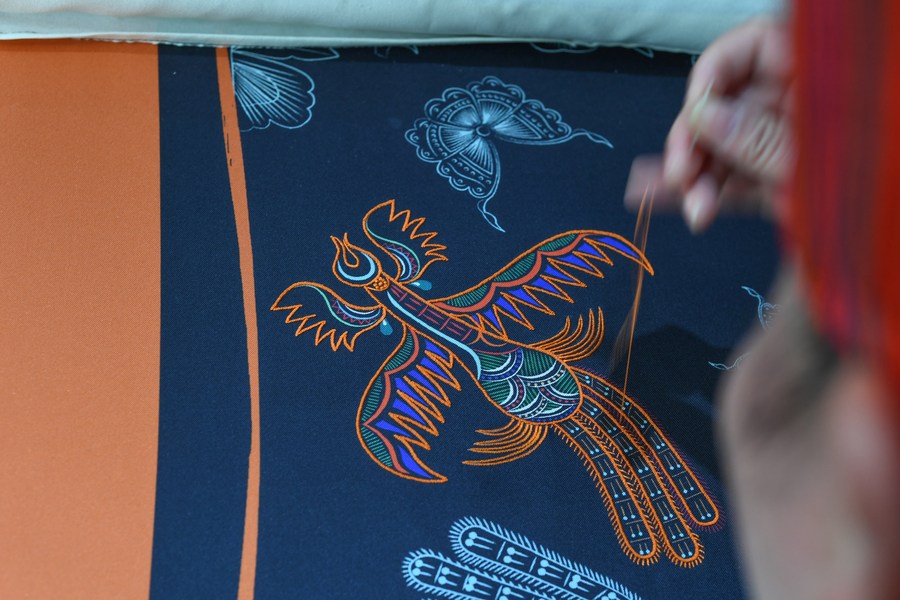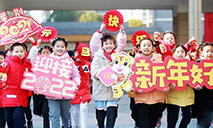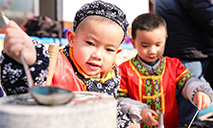Xi and the power of Chinese culture

People visit the Museum of the Communist Party of China (CPC) in Beijing, capital of China, July 15, 2021. (Xinhua/Chen Yehua)
BEIJING, Jan. 3 (Xinhua) -- The Chinese nation will not be able to rejuvenate itself without a rich and prosperous culture, Xi Jinping, general secretary of the Communist Party of China (CPC) Central Committee, told the Party at its 19th National Congress in 2017.
Noting that Socialism with Chinese characteristics roots in Chinese culture, Xi stressed the need to combine fine traditional culture with the Marxist stand, viewpoint and approach.
Drawing the essence of traditional Chinese culture, Xi, who is also Chinese president and chairman of the Central Military Commission, has applied them to the governance of the Party, the state, and the military.
In late November 2012, shortly after the 18th CPC National Congress, Xi visited an exhibition in China's National Museum that reflected Chinese history since the First Opium War and put forward the concept of the "Chinese Dream."
"National rejuvenation has been the greatest dream of the Chinese people since modern times began," he said.
In 2014, while talking with teachers and students of Peking University, Xi said that core values carry the spiritual aspiration of a nation and country, and represent the standard for judging right and wrong.
The core socialist values that China upholds are prosperity, democracy, civility, harmony, freedom, equality, justice, the rule of law, patriotism, dedication, integrity and friendship.
"These values embody the thoughts of the ancient sages," Xi told pupils while visiting a primary school in Beijing in 2014.
Xi stressed efforts to creatively transform and develop traditional Chinese culture under the guidance of core socialist values to adapt the fine traditions with modern life.
In Xi's eyes, China's excellent traditional culture is the root and soul of the Chinese nation. He emphasized the protection of traditional blocks, ancient buildings, the Grand Canal, grottoes, and other unique ancient relics.
While presiding over a group study session of the Political Bureau of the CPC Central Committee on archaeology, Xi noted that to protect and inherit the historical and cultural heritage is to fulfill the responsibility for history and the people.

A woman works on an embroidery at a workshop in Shibing County of Qiandongnan Miao and Dong Autonomous Prefecture, southwest China's Guizhou Province, Jan. 21, 2021. (Xinhua/Lei Guangjie)
Xi also values the traditional culture of ethnic minority groups. During a visit to Guizhou Province, where a large number of ethnic Miao people live, Xi lauded the villagers' efforts to use Miao embroidery to pass down ethnic and traditional culture.
"What's traditional is also fashionable," Xi said.
Preserving traditional culture does not equate to rigidity and isolation. Culture will thrive with exchanges.
Speaking at the College of Europe in Bruges, Belgium, in 2014, Xi used tea and beer as a metaphor for the coexistence of Eastern and Western cultures.
"The Chinese people are fond of tea and the Belgians love beer," Xi said. "To me, a moderate tea drinker and a passionate beer lover represent two ways of understanding life and knowing the world, and I find them equally rewarding."
"When good friends get together, they may want to drink to their heart's content to show their friendship. They may also choose to sit down quietly and drink tea while chatting about their life," Xi added.
The ancient Silk Road promoted trade and communication among Eastern and Western civilizations 2,000 years ago. The Belt and Road initiative that Xi proposed in 2013 drew the wisdom of ancestors and opened up a path of opportunities for different countries to achieve common prosperity in the 21st century.
Xi also encouraged Chinese artists and writers to establish a distinctive Chinese style and demeanor in world literature and art.
In 2012, Mo Yan was awarded Nobel Prize in Literature, and sci-fi writer Liu Cixin won the Hugo Award for Best Novel for his bestseller "The Three-Body Problem" in 2015.
The Chinese are more aware that the national rejuvenation not only refers to better livelihood but also a confident expression of its civilization.
"The time-honored Chinese culture is capable of adding glory to it today and in the days to come," Xi said.
Photos
Related Stories
- Xi extends condolences over passing of former Greek president
- Xi's New Year speech shows China's firm resolution towards building community with shared future
- Xi's speech on learning from history for better future published
- Chinese Wisdom in Xi's Words: "The world is for everyone"
- Highlights: Chinese President Xi Jinping's 2022 New Year Address
Copyright © 2022 People's Daily Online. All Rights Reserved.










